A Guide to Bamboo Floor Maintenace

In a world where every minute of free time is invaluable, low-maintenance home features are no longer a simple convenience; they are a necessity – and the demand for them is growing exponentially on a virtually daily basis.
One of the solutions that’s seeing a dramatic increase in popularity in Winston-Salem is bamboo hardwood floors, not just because they’re versatile and cost-effective – but because they perfectly fit the “low-maintenance” profile. Let’s dive in and explore why.
 Are bamboo floors high maintenance?
Are bamboo floors high maintenance?
The short answer would be: no. In fact, bamboo floors could be considered the furthest thing from “high maintenance” since they are quite easy to care for – especially compared to their traditional counterparts and even tile flooring.
The reason for this is that bamboo is incredibly resilient. It’s innately resistant to scratching, denting, and fading, meaning that it only needs minimal upkeep to look and feel its best. That being said, regular maintenance is still necessary to preserve its integrity.
How often do you need to clean bamboo floors?
The good news is: not that often! The frequency of bamboo floor cleaning will mostly be tied to how busy your household is and, of course, your personal preference. Since every home is different, there’s no “one size fits all” schedule, but here are some general guidelines that are proven to give excellent results:
- Daily (or once every two days): A quick swipe with a soft-bristled broom or even a dry mop is enough to prevent the buildup of dust, dirt, and debris.
- Weekly (or bi-weekly for low-traffic households): Damp cleaning with a microfiber mop or similar gentle tool ensures excellent cleanliness with relatively little effort.
- Monthly: Deep cleaning of all areas is highly recommended, regardless of the amount of traffic. If you want to go the extra mile (and you should), you can also apply bamboo floor polish, as it helps protect your floors and prolong their lifespan.
What should you not put on a bamboo floor?
Although bamboo is extremely durable, it is far from indestructible. Some practices can damage it and you’d do well to steer clear of them if you want to reap the benefits of your bamboo flooring for years to come. Here’s what you should avoid:
- Excess moisture: Although bamboo is more moisture-resistant than many hardwoods, it is not impervious to it. Therefore, do not soak the mop when cleaning, and avoid using tools such as steam cleaners or wet vacuums.
- Harsh chemicals: Never use abrasives or acid-based cleaners on hardwood floors (in general) as these can strip the finish and damage the wood. Instead, use a bamboo-specific cleaning agent or a mild, pH-neutral hardwood floor cleaner – and follow manufacturer instructions.
- Sharp objects: Things like furniture with metal legs or other pointy objects can leave unsightly dents and scratches on your hardwood flooring. If there’s no other way around it, be sure to use solutions such as felt pads to minimize the impact.
- Rugs with rubber backing: This one may seem oddly specific, but rubber backing can damage the finish or leave a sticky residue that is a pain to clean without using harsh chemicals (and we already know that these are a no-go).
Who are the leading experts on bamboo hardwood floors near me in Winston-Salem?
For 20+ years, Premier Hardwood Flooring has been the preferred choice of contractor in Old Salem and throughout the Winston-Salem area. Whether you need professional hardwood floor installation or expert bamboo floor refinishing, we have the equipment and expertise to do the job – and do it in line with the industry’s highest standards. Reach out to us today and let us help you create a home you’ll be proud to call your own!

 Are bamboo floors high maintenance?
Are bamboo floors high maintenance?
